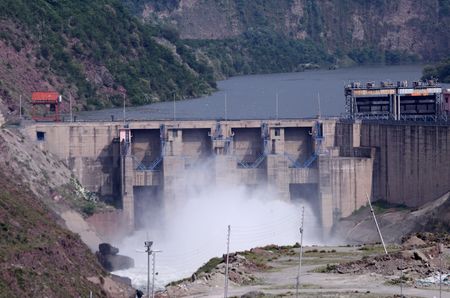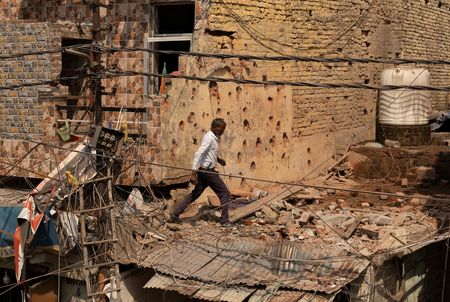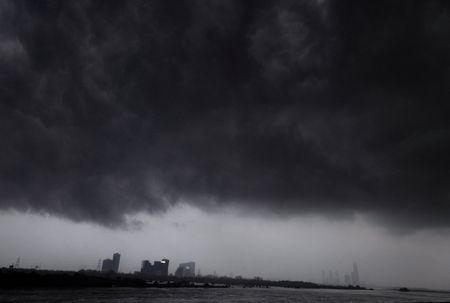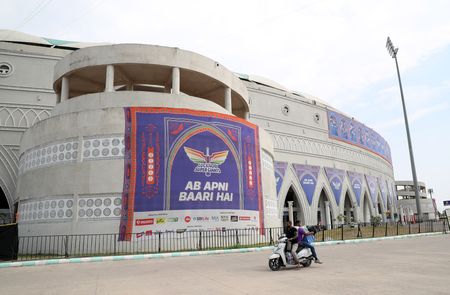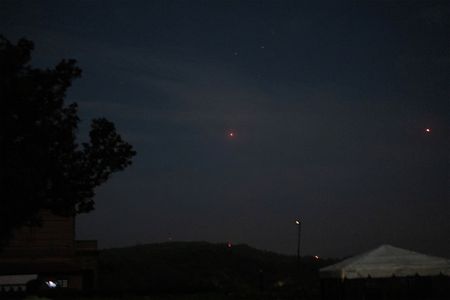By Sarita Chaganti Singh, Shivam Patel and Ariba Shahid
NEW DELHI/KARACHI (Reuters) -A key water-sharing pact between India and Pakistan remains suspended, four government sources told Reuters, despite the countries reaching a ceasefire agreement on Saturday after days of deadly fighting.
The Indus Waters Treaty, mediated by the World Bank in 1960, regulates the division of water from the Indus River and its tributaries between the South Asian nations.
India pulled out of it last month after a deadly attack targeting Hindu tourists in Kashmir that it said was backed by Islamabad.
Pakistan denied involvement in the violence and had said it was preparing international legal action over the suspension of the treaty, which ensures water for 80% of its farms.
“Indus Waters Treaty was not really a part of (ceasefire) discussions,” said a source from Pakistan’s water ministry.
An Indian government source also told Reuters there was “no change in stand” on the treaty.
There was no immediate response from India’s foreign ministry on the matter, or from officials at Pakistan’s water ministry and the information minister.
The pact was one of many tit-for-tat measures taken by the South Asian nations after the Kashmir attack, including closure of land borders, suspension of trade, and a pause on issuance of almost all categories of visas to each other’s citizens.
Two sources from the Indian government told Reuters that all measures taken against Pakistan, including on trade and visas, would remain in place despite the pause in violence between the countries.
India’s foreign ministry did not immediately respond to a request for comment on the matter.
India and Pakistan had engaged in daily clashes since Wednesday when India struck multiple locations in Pakistan that it said were “terrorist camps”.
Fighting paused on Saturday evening with the countries reaching what Pakistan termed a “ceasefire agreement” and India called an agreement to “stop all firing and military action.”
(Reporting by Sarita Chaganti Singh and Shivam Patel in New Delhi and Ariba Shahid in Karachi, writing by Sakshi Dayal; Editing by Krishna N. Das and Tomasz Janowski)

